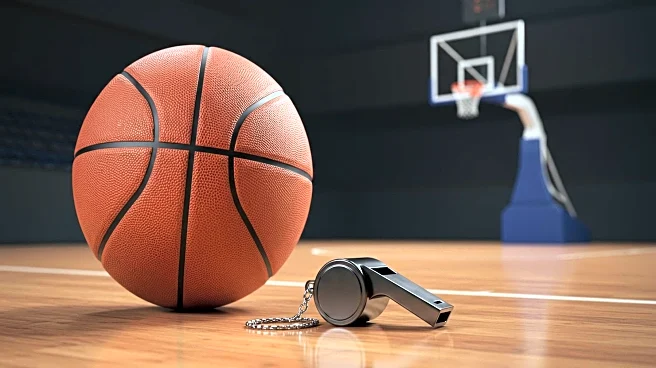What is the story about?
What's Happening?
During a recent WNBA game between the Dallas Wings and the Indiana Fever, Sophie Cunningham expressed frustration over the officiating, particularly regarding calls favoring rookie guard Paige Bueckers. The Wings secured a narrow 81-80 victory, improving their season record. Bueckers scored 16 points, but Cunningham, who was tasked with guarding her, was displeased with the foul calls against her. In one instance, Cunningham was penalized for a foul after Bueckers shoved her, and later received a flagrant foul for being in Bueckers' landing space during a three-point attempt. Cunningham voiced her discontent on her podcast, criticizing the inconsistency in officiating and the perceived favoritism towards Bueckers.
Why It's Important?
Cunningham's comments highlight ongoing concerns about officiating standards in professional sports, particularly in the WNBA. Her critique suggests a perceived bias that could affect the integrity of the game and player morale. If officiating inconsistencies persist, they could impact team strategies and player performances, potentially influencing game outcomes and league standings. This issue also raises questions about fairness and transparency in sports officiating, which are crucial for maintaining trust among players, coaches, and fans.
What's Next?
Cunningham's public criticism may prompt the WNBA to review officiating practices and address any perceived biases. The league could consider implementing more stringent oversight or training for referees to ensure fair play. Additionally, Cunningham's comments might lead to discussions among players and coaches about the need for consistent officiating standards. The Fever's head coach, Stephanie White, has also voiced concerns, indicating potential collective action or advocacy for change within the league.
Beyond the Headlines
The situation underscores broader issues of gender equity in sports, as female athletes often face different challenges compared to their male counterparts. Cunningham's outspoken stance may inspire other players to speak up about similar issues, fostering a culture of accountability and advocacy within women's sports. This could lead to long-term shifts in how officiating is perceived and managed, ultimately contributing to a more equitable sports environment.















